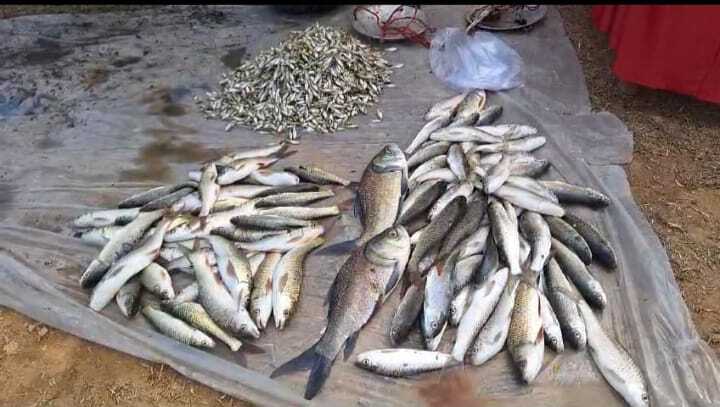Dharmanagar, Jan 11, 2025, TRIPURATIMES Desk

Dharmanagar Jan 11: In an attempt to celebrate and boost the local fishing industry, the department of fisheries has taken the initiative to hold fish festivals in all eight districts of the state.
The North District-based fish festival recently took place at Panisagar's Vivekananda Mukta Mancha, in presence of Zilla Sabhadipati Aparna Nath, Assistant Sabhadipati Bhabatosh Das, Additional District Magistrate L. Darlong, District Fisheries Officer Bijoy Roy, and other notable figures.
The festival emphasized the successes of the Pradhan Mantri Matsya Yojana and the Chief Minister Matsya Yojana, highlighting claims of increased fish production.
However, these claims face scrutiny as the practical outcomes are not evident in the market. Contrary to the assertions of increased fish production, there is a notable shortage of fish in the open market, driving prices beyond the reach of the poor and lower class.
The decrease in fish imports from outside the state has compounded the problem, causing a significant surge in prices across local markets, including the northern district.
The spike in fish prices is mirrored by a similar rise in meat prices. Despite occasional monitoring of daily necessities by district and sub-district administrations, there is an apparent lack of oversight in the fish and meat markets, allowing prices to soar unchecked.
This lack of regulation has enabled a segment of fish traders to exploit the situation, exacerbating the financial strain on buyers.
Currently, fish from outside the state is being sold at Rs 400 to 500 per kg, while local Rohu fish commands a price of Rs 400 taka per kg. Larger species like Rohu, Katla, Mrigel, and Karfu are priced between Rs 500 to 550 per kg. Smaller fish varieties are available for Rs 500 to 600 per kg, and shrimp and small river fish are being sold at Rs 800 to 1,000 per kg.
Similarly, poultry meat prices have escalated from Rs 200 to a staggering Rs 350 to 375 per kg. Traders attribute these increases to diminished fish imports and insufficient supply of chicks for poultry meat.
Fish enthusiasts lament the government's lack of control over the fish and meat market, accusing traders of manipulating prices to their advantage.
Despite government assurances of self-sufficiency in fish and meat production, the reality presents a stark contrast.
The absence of imports from other states triggers crises, and the current trends indicate a continuous rise in prices. With Makar Sankranti approaching, the situation seems poised to worsen, leaving consumers to bear the brunt of escalating costs.
While the district-based fish festival in the state serve to celebrate and promote local fish production, the disconnect between government claims and market realities highlights the urgent need for effective regulation and intervention to stabilize prices and ensure accessibility for all.